The most exciting features in Windows 11
Microsoft's new OS features native Android apps, direct Teams integration, and more
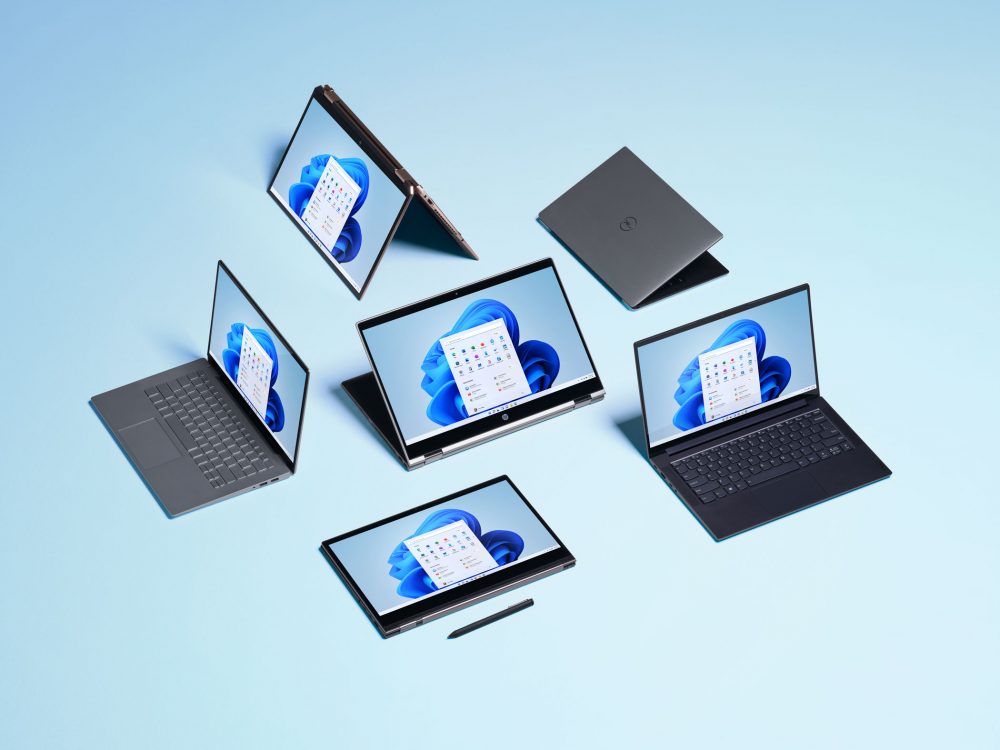

Windows 11, the latest iteration of Microsoft's flagship operating system, started rolling out on 5 October.
It's being deployed in phases, so you'll need to check whether it's available your Windows laptop or desktop PC has the required specifications before you can install it. If not, Windows 11 could be worth waiting for, with its revamped design, central start menu, the choice between Windows 11 Home vs Pro, dedicated Microsoft Teams button and much more.
Central Start Menu
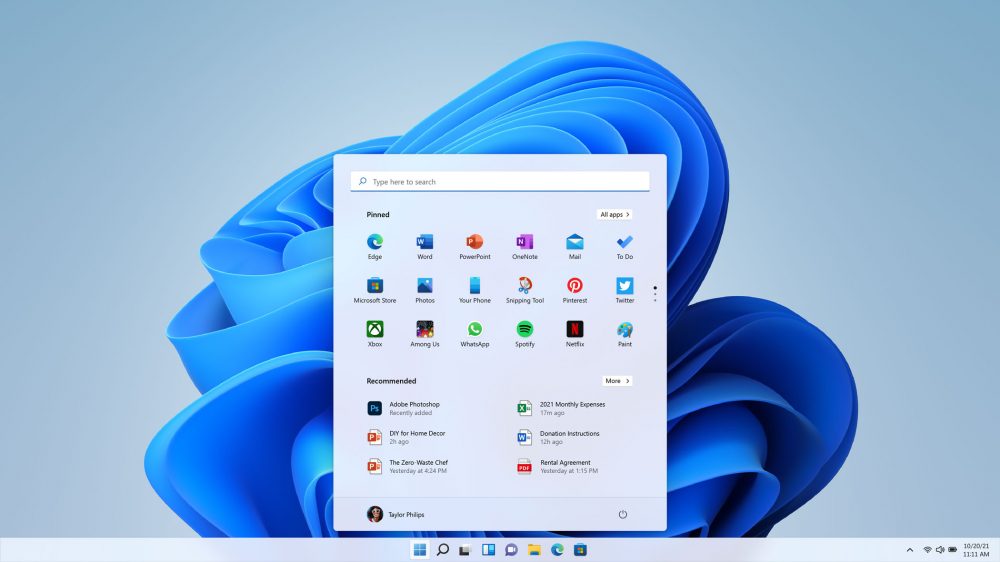
The first change most users will see is the new central Start menu, which has been repositioned to add a "sense of calm and ease", according to Microsoft.
On first impression, it does appear less complex than the Start men of old, especially with the 'Start button' sitting in a more accessible place on the toolbar. The operation seems very similar to the macOS toolbar and this is likely to be the first new feature to come under user scrutiny.
Snap Layouts
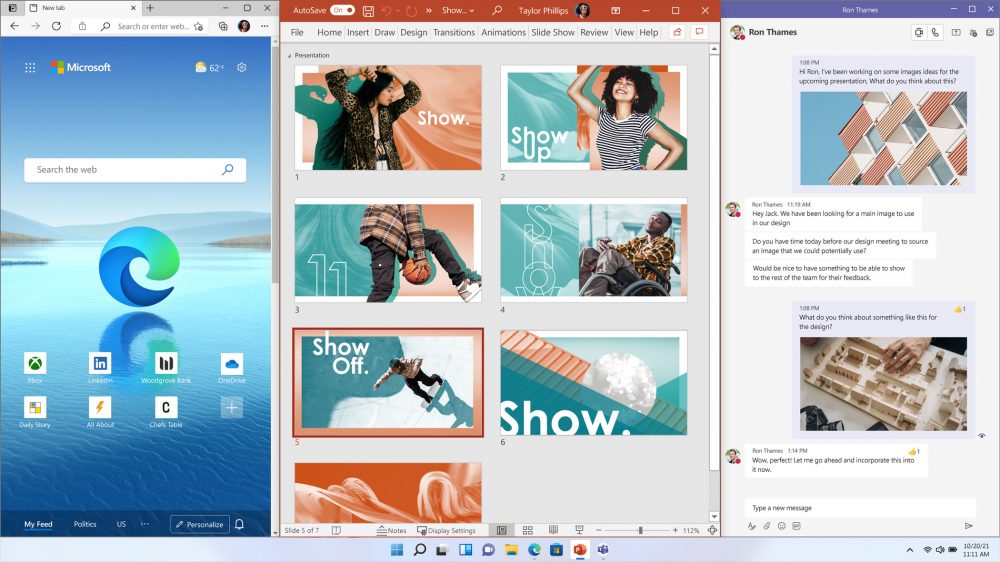
Like with most changes these days, Windows 11 looks like it has the hybrid workforce in mind. This is most apparent with the Snap Layouts, Snap Groups and Desktop features.
The idea is to turn (or snap) into other apps that Windows 11 supports without clogging up your screen space or plugging in an external monitor. All this will be organised via Snap Groups where you can view which apps you still have running and which ones you can exit.
Microsoft Teams integration
Microsoft Teams has gone from strength to strength during the pandemic and Microsoft hopes to solidify those gains by natively integrating the collaboration tool into Windows 11.
Get the ITPro daily newsletter
Sign up today and you will receive a free copy of our Future Focus 2025 report - the leading guidance on AI, cybersecurity and other IT challenges as per 700+ senior executives
What's unclear is how much Microsoft will push Teams on users of rival services like Slack or Facebook Workplace, although recent efforts to promote its Edge browser to Windows users suggest pop-up style adverts may be on the way.
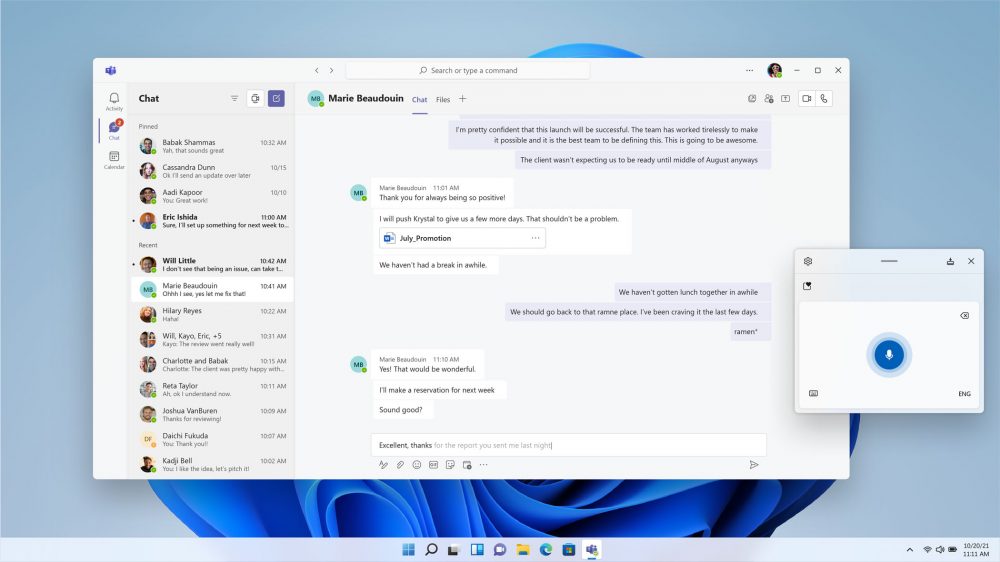
"This innovation is well-timed for the COVID world, which has (re)established the centrality of the PC to the future of work and to digital life," said J.P. Gownder, VP and principal analyst at Forrester. "Whether these features pop for employees remains to be seen, but they're directionally aligned to the new world of hybrid work."
Faster updates
Another great innovation for Windows 11 is the promise that updates will be 40% smaller than those pushed to Windows 10, which, in turn, should significantly speed up the update process and make it less of a burden for users. Updates will also happen in the background, which potentially means a PC will update without the need for constant user interaction or interruptions to work.
Same code base as Windows 10
Speaking of updates, Microsoft has clearly learned its lesson when it comes to OS upgrades, and is keen to avoid the debacle that was Vista and its many incompatible drivers. It's why many people still clung to Windows 7, long after Windows Vista and Windows 8 had come and gone.
Windows 11 has been built on the same code base as Windows 10, meaning that when the time comes to upgrade, the process should be relatively painless for users.
"That's good news," said Gownder. "It means that the application and driver 'breakage' that famously plagued OS releases like Windows Vista is unlikely to occur. And Win32 apps will still be able to run natively on Windows 11."
Android apps
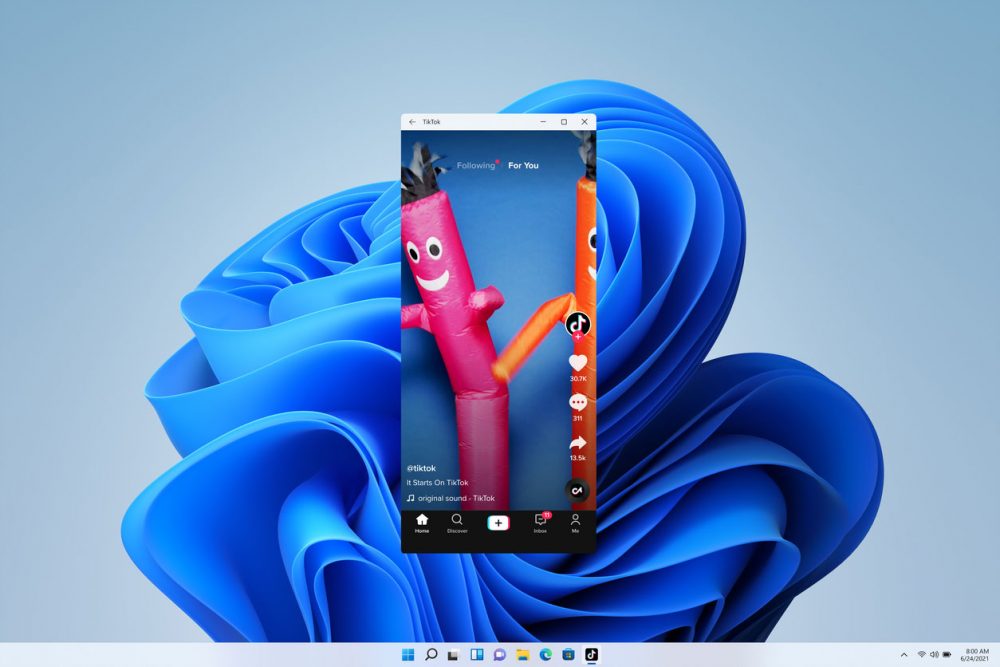
RELATED RESOURCE
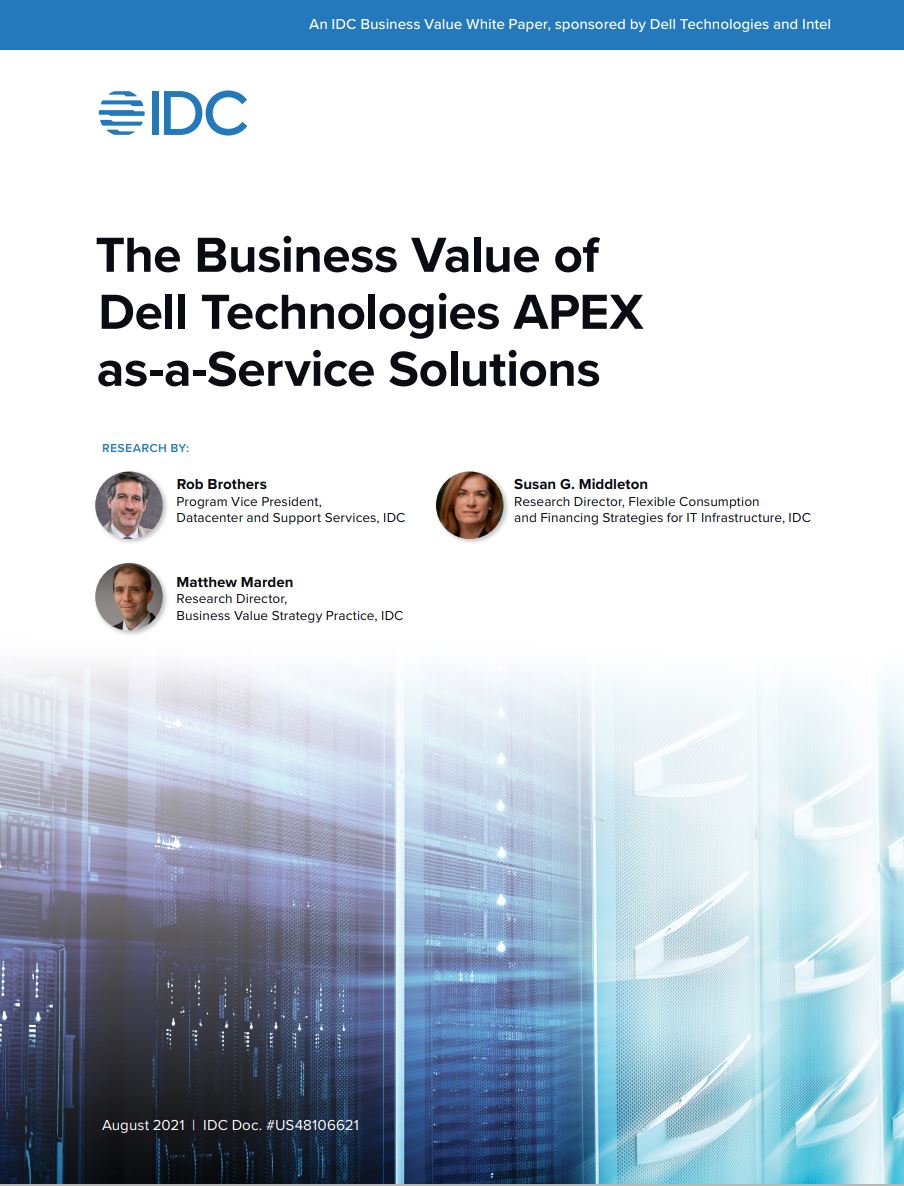
The business value of Dell Technologies APEX as-a-Service solutions
Lowering your annual infrastructure costs
Android apps will run natively on Windows 11 for the first time and you can access them through the Microsoft Store, although the apps won’t be available at the launch of the OS.
This is because of a partnership with Intel and Amazon which allows Microsoft to use the former’s Bridge technology. This tech is a runtime post-compiler that enables applications that were originally designed for different hardware platforms to run natively on x86 devices.
Microsoft also said that this was part of an ongoing XPU strategy, so it is probable that in the future the tech giant might introduce more than just Android apps to Windows 11.
Developer policy change
Windows 11 will also introduce a brand new store to users and, maybe more importantly, the store will also bring in a fairly significant policy change for app developers.
From 28 July, developers will be able to utilise their own third party payment systems within their apps, and Microsoft will allow them to keep 100% of the revenue, with the only exception to this rule being gaming apps.
The intention of this policy is to attract more developers to the Microsoft Store, although there is a suggestion the tech giant is firing a shot at companies like Google and Apple for the way they aggressively implement app payment policies.
Cortana ousted from the boot-up
During the initial setup of a new Windows machine, you'd have to search far and wide to find someone that found Cortana, Microsoft’s voice assistant, helpful during this process. In Windows 10, the assistant is programmed to automatically begin speaking when you open a laptop for the first time, and it can be troublesome to switch off. Thankfully, Windows 11 has scrapped this feature entirely.
Bobby Hellard is ITPro's Reviews Editor and has worked on CloudPro and ChannelPro since 2018. In his time at ITPro, Bobby has covered stories for all the major technology companies, such as Apple, Microsoft, Amazon and Facebook, and regularly attends industry-leading events such as AWS Re:Invent and Google Cloud Next.
Bobby mainly covers hardware reviews, but you will also recognize him as the face of many of our video reviews of laptops and smartphones.
-
 Bigger salaries, more burnout: Is the CISO role in crisis?
Bigger salaries, more burnout: Is the CISO role in crisis?In-depth CISOs are more stressed than ever before – but why is this and what can be done?
By Kate O'Flaherty Published
-
 Cheap cyber crime kits can be bought on the dark web for less than $25
Cheap cyber crime kits can be bought on the dark web for less than $25News Research from NordVPN shows phishing kits are now widely available on the dark web and via messaging apps like Telegram, and are often selling for less than $25.
By Emma Woollacott Published
-
 Tiny11 review: Windows 11 with only 2GB of RAM
Tiny11 review: Windows 11 with only 2GB of RAMReview A version of Windows 11 for older machines that don't meet the full requirements
By Nik Rawlinson Published
-
 How big is the Windows 10 cliff-edge?
How big is the Windows 10 cliff-edge?ITPro Network With some comparing the upcoming Windows 10 end of life to Windows XP, we ask members of the ITPro Network for their insight
By Jane McCallion Published
-
 Everything you need to know about the latest Windows 11 updates - from bug fixes to brand-new features
Everything you need to know about the latest Windows 11 updates - from bug fixes to brand-new featuresNews Two new cumulative updates are on the way and will be installed automatically on Windows 10 and Windows 11 machines
By Rory Bathgate Published
-
 How to download a Windows 11 ISO file and perform a clean install
How to download a Windows 11 ISO file and perform a clean installTutorial Use a Windows 11 ISO to install the operating system afresh
By John Loeppky Published
-
 How to enable Secure Boot in Windows 11
How to enable Secure Boot in Windows 11Explainer Most modern PCs have Secure Boot enabled by default, but you may need to manually turn it on to meet Windows 11's security requirements
By John Loeppky Last updated
-
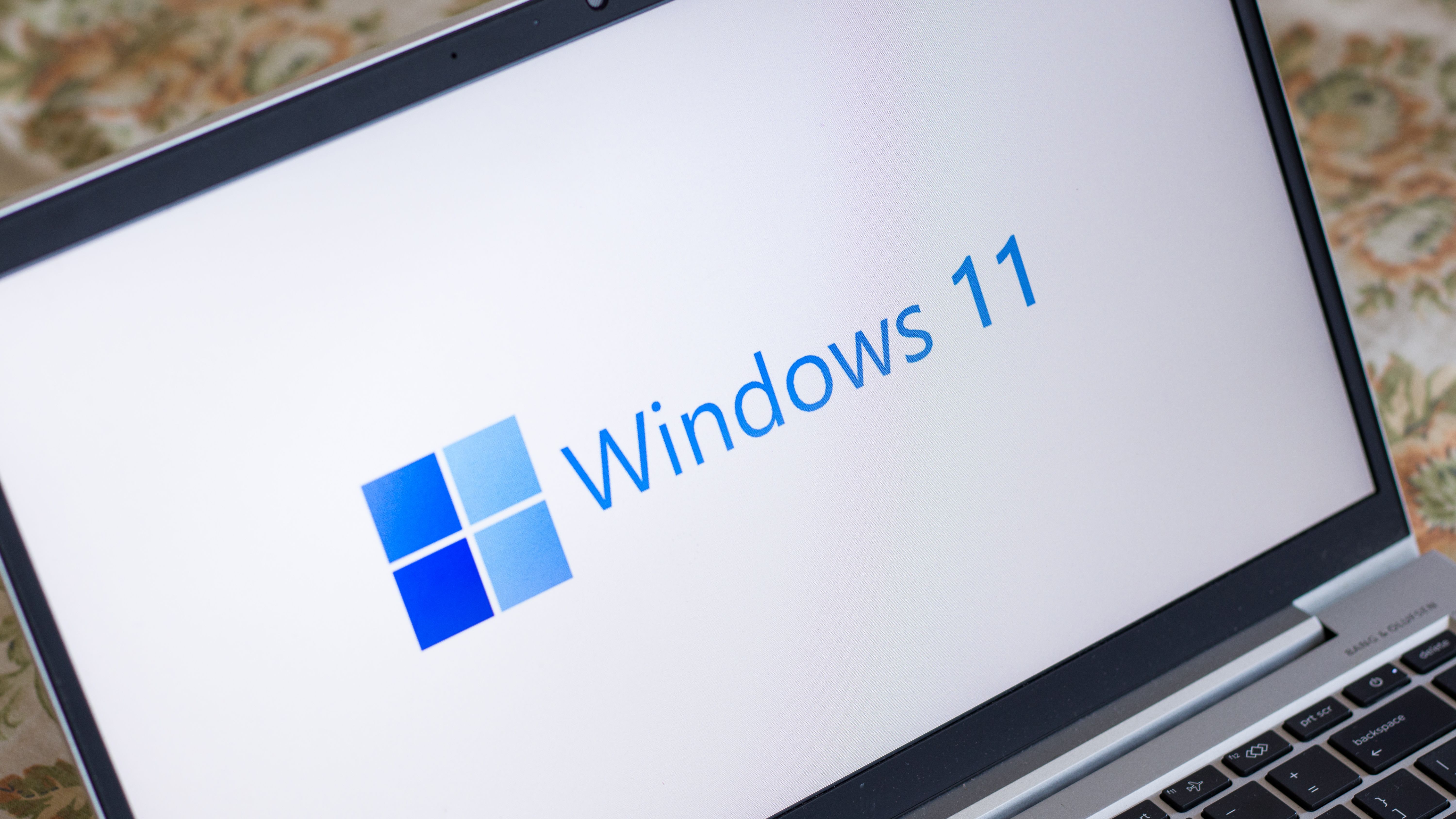 Windows 11 minimum requirements: How to check your system
Windows 11 minimum requirements: How to check your systemTutorials Your computer needs to meet several Windows 11 minimum requirements in order to upgrade and run the new OS effectively
By John Loeppky Last updated
-
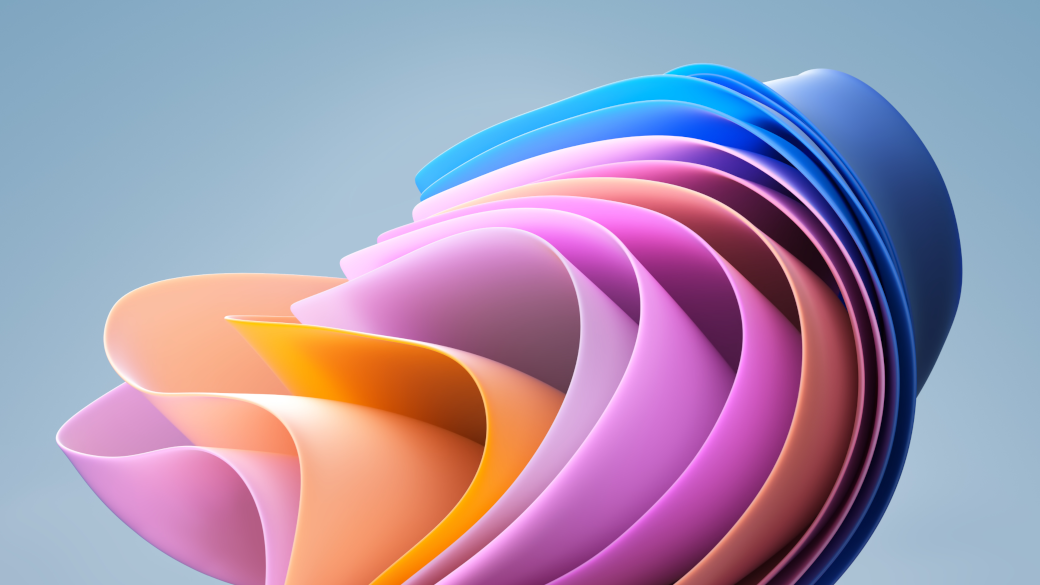 Making us wait for Windows 11 upgrades to install is unacceptable
Making us wait for Windows 11 upgrades to install is unacceptableOpinion There’s no reason why Windows 11 upgrades like 22H2 or the upcoming 23H2 should take the best part of an hour on machines with plenty of RAM, CPU and fast storage
By Jon Honeyball Published
-
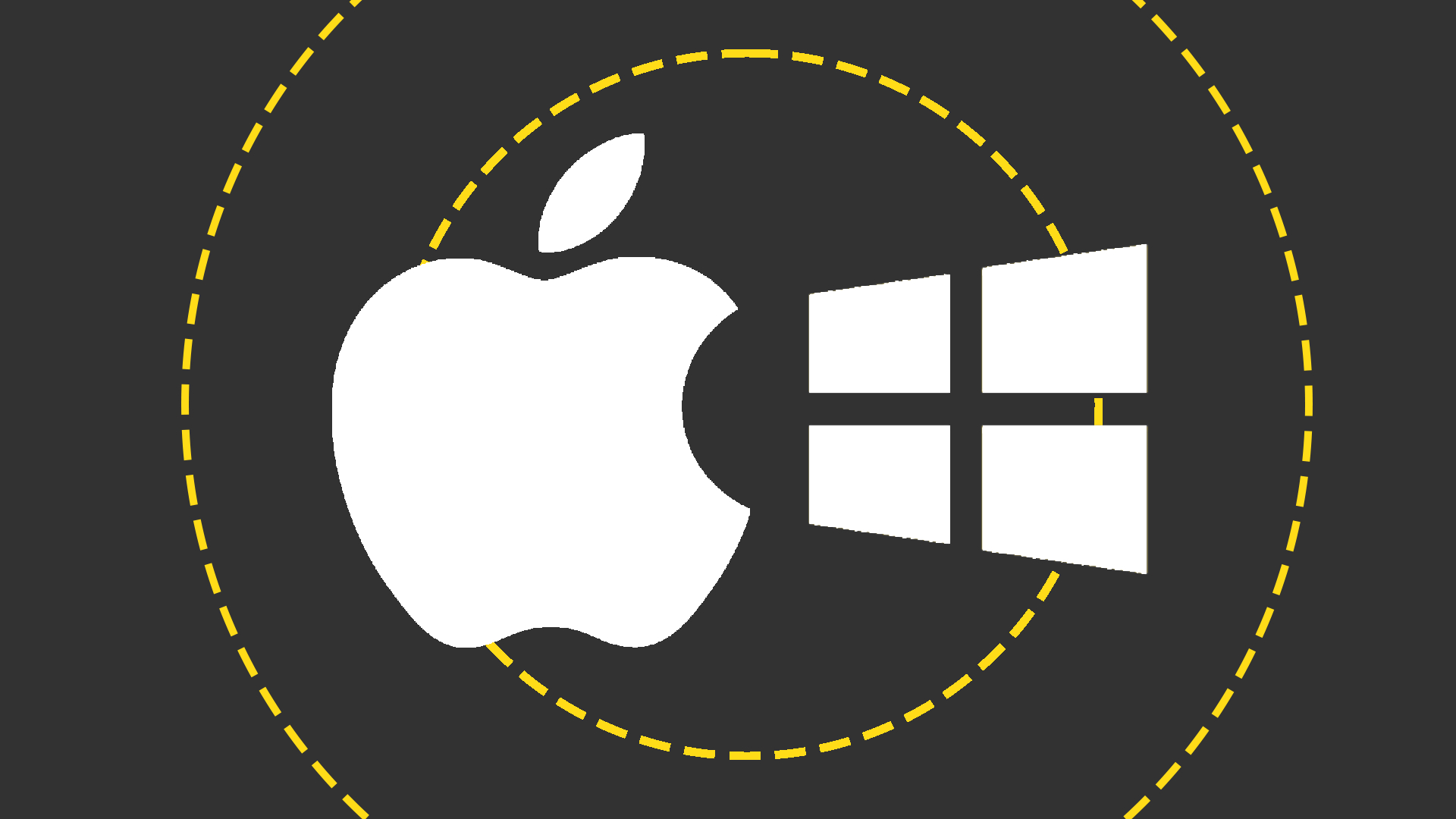 Microsoft officially brings Windows 11 to Macs via Parallels
Microsoft officially brings Windows 11 to Macs via ParallelsNews The partnership with Parallels brings the official Windows 11 OS to Mac for the first time, but with a catch
By Connor Jones Published